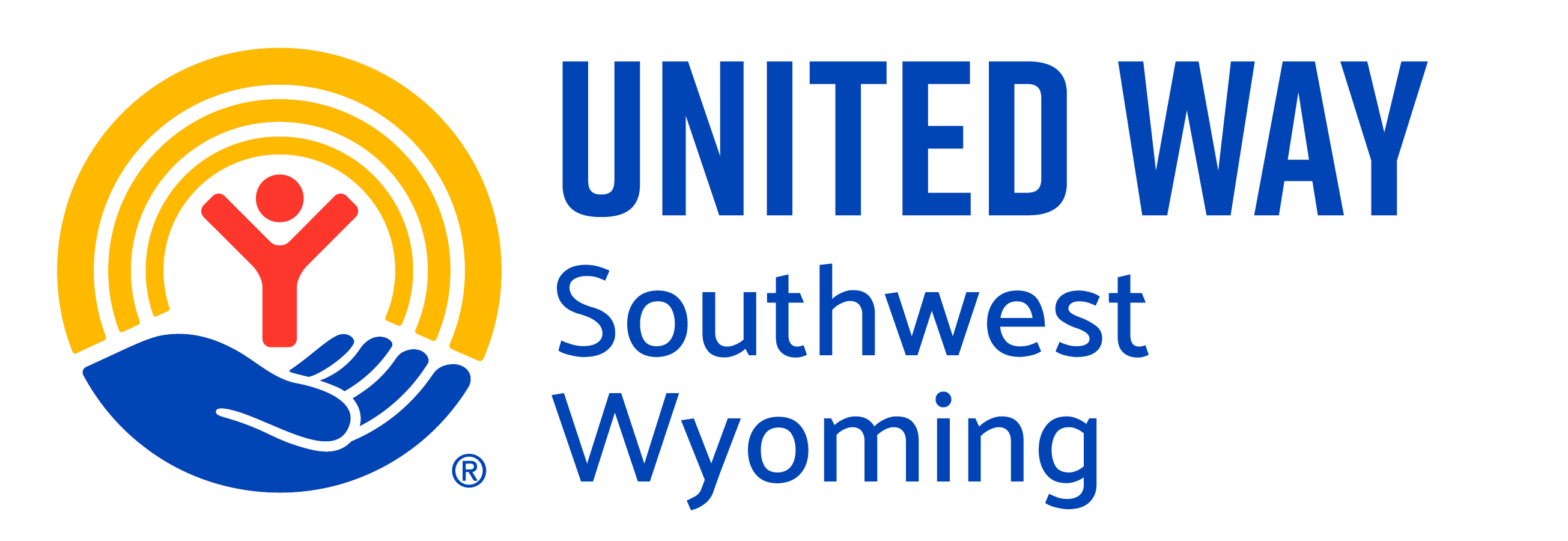
The Emergency Food & Shelter Program (EFSP) was established by Congress in 1983 in response to the 1982 Recession, which revealed that state and local public and charitable organizations could not fully address the nation’s homelessness and food insecurity crises without federal support. EFSP funds can be used for a wide range of services, including mass shelter, mass feeding, food distribution through pantries and food banks, one-month assistance with rent, mortgage, or utility payments to prevent evictions, and support for transitioning from shelters to stable living conditions.
EFSP is administered by a National Board chaired by FEMA, in partnership with the American Red Cross, Catholic Charities USA, National Council of the Churches of Christ in the U.S.A., The Salvation Army, The Jewish Federations of North America, and United Way Worldwide, which serves as the National Board’s Secretariat and Fiscal Agent.
United Way of Southwest Wyoming acts as the contact for the Local Board, covering Fremont, Lincoln, Sublette, Sweetwater, and Uinta Counties. The National Board allocates funds to each county based on population, unemployment, and poverty statistics. The Local Board then reviews applications and distributes funds to local programs from the allotted amount.
On January 27, 2025, the Office of Management and Budget (OMB) released a memorandum to federal agencies, requiring a temporary pause on all activities related to obligation or disbursement of all Federal financial assistance, and other relevant agency activities that may be implicated by the recent executive orders. OMB has rescinded this memorandum.
The Emergency Food and Shelter Program (EFSP) National Board recognizes that the memorandum and the recent executive orders may have created a great amount of uncertainty and anxiety for the Local Boards and Local Recipient Organizations participating in the program. The National Board is working closely with the Federal Emergency Management Agency (FEMA) to better understand and respond to the anticipated impact on the EFSP and the program participants. EFSP staff will provide timely updates on the program’s web page as more information becomes available.
Phase 39 Awards - $21,000
Almost Home - $5,145
First Stop Help Center - $5,145
Eagles Hope Transitions - $5,145
Foundations for Nations - $5,145
United Way of Southwest Wyo (admin) - $420
ARPA-R Awards - $26,500
Almost Home - $6,990
First Stop Help Center - $6,990
Eagles Hope Transitions - $5,000
Foundations for Nations - $6,990
United Way of Southwest Wyo (admin) - $530
Phase 39 Awards - $7,450
Afton Food Pantry - $7,301
United Way of Southwest Wyo (admin) - $149
ARPA-R Awards - $9,650
Afton Food Pantry - $9,457
United Way of Southwest Wyo (admin) - $193
Phase 39 Awards - $4,550
Community Food Closet - Big Piney - $4,459
United Way of Southwest Wyo (admin) - $91
ARPA-R Awards - $7,250
Sublette County Pioneers - $7,105
United Way of Southwest Wyo (admin) - $145
Phase 39 Awards - $17,315
Boys & Girls Club of Sweetwater County - $600
Sweetwater Family Resource Center - $7,369
Young at Heart - $9,000
United Way of Southwest Wyo (admin) - $346
ARPA-R Awards - $53,518
Boys & Girls Club of Sweetwater County - $600
Food Bank of Sweetwater County - $20,000
Sweetwater Family Resource Center - $30,631
United Way of Southwest Wyoming Community Diaper Bank - $1,217
United Way of Southwest Wyo (admin) - $1,070
Phase 39 Awards - $8,750
Pioneer Counseling Services - $500
SAFV Task Force - $4,000
Uinta BOCES Foundation - $2,000
Youth Alternative Home Association - $2,075
United Way of Southwest Wyo (admin) - $175
ARPA-R Awards - $13,700
Evanston Youth Club - $2,000
Pioneer Counseling Services - $3,500
SAFV Task Force - $4,426
Uinta BOCES Foundation - $2,500
United Way of Southwest Wyo (admin) - $274
Local boards must be comprised of representatives at the local level of the same organizations as those on the National Board. A local government official must serve in place of the FEMA representative. In jurisdictions where affiliates of National Board representatives do not exist, other appropriate representatives should be invited to sit on the local board. Local boards must also include in their membership a representative who is homeless, formerly homeless, or a former recipient of program services. If the jurisdiction is located within or encompasses any federally recognized tribal lands, the local board must invite a tribal representative from each tribe to serve on the board. If a jurisdiction has a tribal population, then a tribal representative must also be invited to serve.
Additionally, the National Board encourages local boards to expand their membership to best reflect the community. In expanding membership, local boards must invite organizations that advocate for or provide services to the elderly, families with children, veterans, and individuals with disabilities. Local boards advertise the availability of funds, establish priorities among community needs, award funds to recipient organizations, notify the National Board of funding decisions so the National Board can disburse funds directly to recipient organizations, and monitor and assist recipient organizations to ensure they follow program guidelines.
If you are interested in serving on the Local Board contact Shelley, 307.362.5003.
